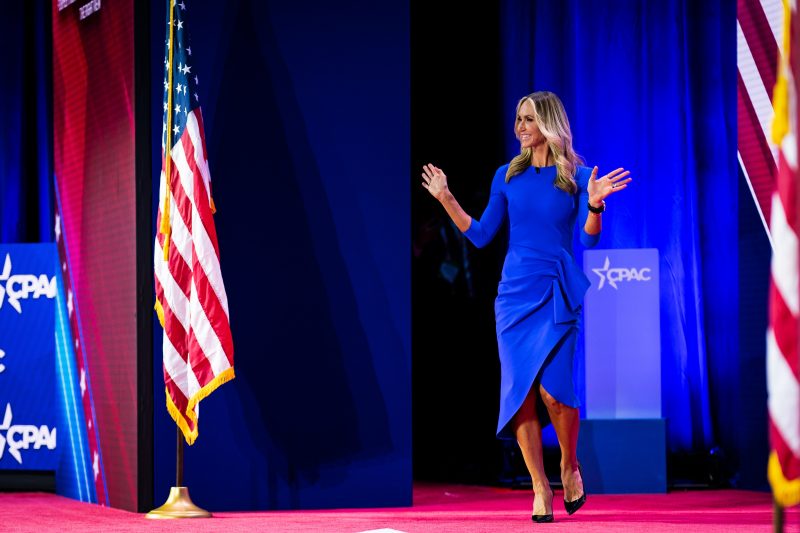Trump’s Suggestions for RNC Leadership: A Bold Move or Cause for Concern?
In a surprising turn of events, former President Donald Trump recently made suggestions for the Republican National Committee (RNC) leadership, indicating his desire to influence the direction of the party even after leaving the White House. According to sources close to the matter, Trump has recommended his daughter-in-law, Lara Trump, along with two others, for key positions within the RNC. This move has sparked both excitement and criticism within the party, raising questions about the future of Republican leadership and the possible consequences of Trump’s continued involvement.
Lara Trump, wife of Eric Trump and daughter-in-law to the former President, has been an outspoken advocate for Trump’s policies and an influential figure in his campaigns. Trump’s recommendation for Lara to play a prominent role in the RNC suggests his belief in her ability to further his political agenda and maintain the base of supporters that propelled him to power. Her strong presence and familiarity with Trump’s vision may indeed serve as an asset in rallying the Republican base and advancing the party’s agenda.
Moreover, Trump’s suggestion of two additional individuals for RNC leadership positions signals his intention to shape the party’s trajectory and maintain a loyal network of allies. While their identities are yet to be disclosed, speculation is rife, with potential candidates ranging from longtime Trump loyalists to influential figures from his administration. Trump’s recommendations, if implemented, would undoubtedly inject fresh blood into the RNC’s leadership, potentially harnessing his own brand of politics and continuing his legacy within the party.
Critics, however, argue that Trump’s involvement in choosing RNC leaders could hinder the party’s ability to evolve and broaden its appeal. Some fear that this move may further entrench the party in Trump’s divisive rhetoric and policies, potentially alienating moderate Republicans and exacerbating internal divisions. This concern is not unfounded, considering the GOP’s struggle to reach beyond its traditional voter base in recent years. Trump’s strong influence over RNC leadership may hinder efforts to attract new voters and rebuild a broad coalition necessary for future electoral success.
Another point of contention arises from questions about the meritocracy within the Republican Party. While Trump’s recommendations may be well-intentioned, some argue that they should not take precedence over a transparent and fair selection process that values qualifications, experience, and diversity. Critics assert that Trump’s suggestions may prioritize loyalty to the former President over the best interests of the party or the country, potentially harming the credibility and inclusivity of the RNC leadership.
As the Republican Party searches for its identity post-Trump, the former President’s suggestions for RNC leadership undoubtedly present a critical juncture. It is undeniable that Trump’s endorsement carries significant weight among his millions of supporters, and his continued involvement has the potential to shape the future of the party. While the infusion of fresh perspectives and loyal allies may energize the Republican base, the concentration of power within Trump’s circle could also hinder the party’s growth and adaptation to a rapidly changing political landscape.
Ultimately, the success of Trump’s recommendations and their impact on the RNC’s trajectory will become clearer in the coming months. As the party readies for the 2022 midterm elections and beyond, finding a delicate balance between honoring the former President’s legacy while embracing new perspectives and reaching out to a wider voter base will be crucial. The true test lies in whether the RNC can navigate the influence of Trump’s recommendations without compromising the principles and goals that extend beyond individual personalities, fostering a renewed Republican identity capable of effectively governing and representing its diverse constituency.
